Ben Leber and the NFL's violent reality
The longtime linebacker (and current analyst) dishes on everything: "Bountygate," Brett Favre, youth sports, the NFL's endless rulebook watering down football, and these 2023 Vikings.
Fourteen years ago, Ben Leber should’ve won a Super Bowl.
The longtime NFL linebacker is certain his 2009 Minnesota Vikings would’ve smashed the Indianapolis Colts in South Florida that season. Heck, players on the New Orleans Saints told him exactly that. Indeed, Leber still thinks about that wild NFC Championship Game. And while fans may be irked by “Bountygate,” his take on this all may surprise you.
This Go Long Q&A — always more so loose conversations and archived here — we meander topic to topic. Since polishing off a 10-year career in which he played in 143 games (113 starts) with 500 career tackles, 24 sacks and 18 total turnovers, Leber has served as an analyst. Today, he covers the Vikings as a sideline reporter and co-hosts Twin Cities Live. We discuss:
The state of youth sports in America. As a father of three, certain trends concern him.
Rookie memories.
Playing with Junior Seau in San Diego, and what made the legend so unique.
That ‘09 NFC title game and the aura of Brett Favre.
Why an NFL locker room is a unique place.
Why he often finds football today “unwatchable.”
The 2023 Vikings. Can they contend?
Our conversation is also available on the podcast feed, at Apple, Spotify and YouTube.
A video replay is also below.
Thanks, all.
Go Long covers pro football through longform lens.
Thank you for joining our community.
How in the hell are you? Running around with three kids. Covering the Vikings today. You do a little bit of everything.
Leber: When you have kids and, for me, starting a new career: You just go. I know there’s some intentional thought about things and you do have a little bit of a plan. So much of it is, “We’ve just gotta keep going forward.” My wife and I are like, “We’ll figure this out as we go.” That’s how I feel, in a microcosm, my whole career has been. As a player. Now, as a broadcaster. I’m always trying to move forward. I know there is the bigger goal in mind. But I try not to focus on that goal. I try to survive every day and keep improving every day and never stopping. I get that anxiety and anxiousness when things are stagnant.
It’s been 12 years since you retired. That’s the challenge for everybody. You’re living this “exaggerated” lifestyle. The highs are so high. The lows are so low. At any given moment, anybody could take your job. Any given moment, you could make millions and dollars and be a hero. You’ve got to ride that wave. Because if you don’t ride that wave you’re definitely done. Then, the NFL’s over. You’re ejected into mainstream society and you’ve got to find a way to change it up completely and live a “normal” life or you stay in football somehow and lean into madness other ways. It seems like you’ve been able to keep that survive-and-advance mentality.
Leber: We’re inundated with peoples’ stories and we all love it. You have some stories where guys are like, “Yeah, I was dabbling in this and hustling here and doing this,” and one of their spokes just sort of works out. You get these other successful people — whether they’re athletes or business people — and they’re “I’m singularly focused. I’m all in on the one thing. I have to be fully committed to that one thing.” Athletes have to be all-in and committed to the thing to be successful. I knew a lot of guys in the locker room who had side hustles. By and large, 80 percent of the guys in the locker room — and this is part of the problem in guys transitioning out of the league, or the military — you’re all in. You’re fully committed to be successful at that one thing. It’s stressful. You know every day somebody’s trying to take your job. You know every day, unless you’re performing at the highest of highs and getting a lot of return for the team, they’re looking for ways to go cheaper. They’re looking for ways to get rid of you, whether that’s right or wrong. You feel that. There’s constant anxiety. You can barely hold onto the successes because you know the next day you’ve got to prove it again. It’s what makes the NFL great. But at the same time, it can — I wouldn’t say “wreck” you when it comes to your emotions and your outlook — but it definitely makes it hard when you get done. You don’t have that stress and anxiety. You don’t have the time commitment. The team keeps you on time. They set your schedule for you. You feel sort of lost in what to do. You don’t know what to commit yourself to. A lot of guys will go, “Now that I’m done playing, I want to golf and I also want to get involved in some businesses. I want to do some investing. I want to coach.” We think we have all this time. But we forget what makes us really good at our one job as a professional athlete is we were all in on that one thing. It’s hard to wrap your head around this new world.
And you do it from five, six years old. That’s what makes it really hard, too. It’s your life as far back as you can remember.
Leber: Growing up in South Dakota, we couldn’t specialize. My high school was less than 500 kids. My class was 110, 115. You had to have kids to play every sport. Every season, we needed guys and girls to go out for sports. So, football season, you’re focused on football season. In that small time frame, you’re right. It was all football. My youngest son right now is in club soccer, club hockey and travel baseball. All right now. It’s different because it’s baseball season here in Minnesota, yet he’s still doing hockey because hockey is year ‘round in Minnesota. He still loves to do other things, so he wanted to try the soccer thing. That started last fall but the season doesn’t end until mid-July. But with my upbringing, I was fortunate because I didn’t start football until I was in seventh grade. I only did football for the season of football. We went right into basketball, into track, into baseball. So I didn’t concentrate solely on football until I got to Kansas State. I think, in some ways, that was good. In some ways, I was underdeveloped. I didn’t understand the game as well as other incoming freshmen. Because I didn’t live it 24/7, I developed a hunger for it and that hunger for it set me apart as I went along in college. Because I didn’t burn out.
Patrick Mahomes, if there’s a sport that exists, he probably played it and wanted to kick your ass in it. Golf to ping pong to basketball to baseball. He plays the position as a warped combination of sports. There’s got to be a science to it. If you play all of these sports, it’ll physically be good for you. You’re using your body at these different angles. But mentally, like you said, you’re not going to be burnt out by it.
Leber: Everybody says all the right things. My kids are 15, 12 and nine. We’re right in the middle of this — do you specialize or do you not? We’ve been to a lot of meetings with coaches at the start of seasons. Every coach says the same thing: “We want multi-sport athletes. We encourage kids to play other sports.” And then there comes the big but: “But, when it comes to this season, we expect full commitment, X, Y and Z.” Across the nation, when it comes to AAU and all of the big organizations and corporations that run these youth sports, they say the right things but they do not practice it at all. The second one league or one community, or a rival, if they hear that you’re letting your kid play other sports and kids aren’t super committed to basketball, they say, “Good. Here’s our opening. We’ll be uber-committed to basketball and kick their ass next season.” It becomes this arms race with youth sports. People talk a lot but I have yet to see any coach implement it, truly support it and build a foundation of multi-sport athletes.
Have you heard about the “Norwegian Way?” Tony Gonzalez got into this and it’s been highlighted on Real Sports. Norway implemented a nationwide policy where all youth sports are free, no scores were kept, no stats, if parents go crazy at games they’re kicked out. They went above and beyond to foster the idea that kids can play for the love of sport. All subsidized by a gambling tax. Competition is good. It is good to instill at a young age that not everybody gets a trophy. But there has to be a balance to not burning kids out.
Leber: I don’t know what that balance is. Somehow, some way — even if the seasons are extended a little bit. Like basketball. If basketball went from early October to right before spring break, and then you’re done. If you want to pick up a couple weekend camps or day camps, fine, here and there. Kids aren’t burnt out. They’re not hyper-focused. They can go play lacrosse. They can go play baseball. And be fully committed. I do worry, what are we raising these kids to do? They might be good at a lot of things but not great at one thing. I don’t know. We’re telling these kids at 10, 11, 12 years old, “You’re not good enough.” Why? Because I’m not mature enough yet? “You’re not going to make the team. Sorry, Billy. You’re going to play for the house league.” You’re crushing this kid’s spirit to play a sport they love because they’re maybe just not developed yet. Then, they get to high school and they might be legit. They grow into their bodies. I hit my growth spurt my freshman-to-sophomore year. In this day in age, I would’ve been cast out early on as too small to play.
Thankfully, you weren’t cast out. You played 10 years in the NFL — Chargers, Vikings, Rams. When you look back at your own career, what’s your best memory as a player?
Leber: I remember so much of my rookie year. From the predraft to the Senior Bowl. My God. The Senior Bowl was the most stressful time I went through that whole offseason. The Senior Bowl was so damn intense. You’re watched by everybody. You’re doing a linebacker drill with running backs and tight ends, and you recognize all these head coaches and GMs. And they all just stand there with their arms folded. Stoic. They don’t say anything more than a whisper, and they whisper to the guy next to them who’s probably their big scout. You can tell they’re just talking crap on people. You get done with your drill and you look over. They’re whispering. What are they saying? Was it good? Was it bad? I don’t know. The draft process, the draft night, getting a phone call at 8 o’clock at night from the Chargers thinking it was the Vikings. I thought it was the Minnesota Vikings calling because they were on the clock. It’s the team behind them making the phone call. Not the team on the clock. So, mixed emotions there. Going to San Diego and immediately meeting Junior Seau, I felt like my whole first year was a dream. The season. The practices. Meeting everybody. A whole new life with my now-wife, fiancée at the time.
Junior Seau, what a teammate to have right out of the chute. What was he like? This legend, up close, day-in and day-out?
Leber: Everybody who meets him, you’re immediately pulled into his world. You’re pulled into his energy. There’s a magnetism to his whole being. You walk into he locker room and everybody would just watch his every move. Everything he said, people were hanging on. There was an intensity but there was this boyish, fun-loving spirit — he loved the game. All of these professional players will say: “Man, I miss the games. I miss Sundays. I miss gameday.” What I learned from him, he loved practice. If he was faking it, he did a great job. He loved waking up in the morning, going to the weight room, hitting the weights, getting a sweat on. He was the one guy in the weight room who’s crushing everything. He could run for days. He could lift whatever. He was a superhero. He’d attack meetings with the same intensity. He’s watching the minute things: Where do I go on this play? What am I doing? He was always thinking about the game. It got me to really enjoy the process of the week. You enjoy gamedays because of all the pomp and circumstance. But I learned from Junior that you’ve got to attack the game in the six days leading up to the game. You can’t take a day off. Every practice is important. Every rep is important. It can be fun. He had tons of fun doing what he was doing. Always a smile on his face. Always calling everybody “buddy.” Everybody was his best friend. He was a special human being.
It's been a while since he passed, but that’s one that stunned this generation of football fans. You read “League of Denial” and there’s a lot of names like Mike Webster. Players from the 70s. We all grew up on Junior Seau. Were you guys close when he was going through some of his harder times?
Leber: We were close for a couple years. We only played together one year and he went off to Miami. But San Diego was his home. So, he’d come back every offseason. I’d train with John Lynch and a couple other kids. You’d think Junior lived this exclusive lifestyle. He worked out with this gal who ran an Egoscue Clinic in La Jolla. When we’d work out in the mornings, it was me and Justin Peelle, who’s now the tight ends coach for the Falcons. Justin and I and Junior and John Lynch, we’d work out at 7 in the morning and there would be 10 to 15 other kids, high school kids, who’d work out with us. It was like a group fitness class. It wasn’t this exclusive deal. They loved being around Junior. We were close in that sense. I did a lot for his charity. Hung out in the offseason.
I was really good friends with a lot of his close friends. When he eventually retired, I was staying in touch with his buddies more than I was Junior. I heard everything. I knew what was going on. Guys tried to help him. Guys tried to reach out to him. Unfortunately, I think it was a longer road than people realize. There was an internal struggle going on much longer than people realize. A lot of people tried to help. When you’re in that mental state, you don’t want to be helped. Or there’s denial. Whatever it is. He certainly did not take the advice from the people around him who loved him to get some help.
You’re in Minnesota that ’09 season. That NFC Championship. Even in overtime alone, there were three or four terrible calls up to the pass interference on you that wasn’t close. Let alone the Bountygate stuff. That was a team that must’ve felt like a special group bound to do special things.
Leber: I was preparing myself for this type of question because you’re daggering me right now. It’s early in the morning and I don’t need to relive this pain and horror.
We softened you up talking about kids’ sports.
Leber: It’s a good plan. I like that approach. 2009 was awesome. Starting with Brett Favre, he had that Junior Seau feel and mystique to him. One of the few guys I’ve been around where, when he walked around the locker room, it was: “Oh yeah. This is exactly what Junior had.” He has that magnetism. It was such a fun season. Every defense I was on with the Vikings, we were good. We were good, if not great. Statistically, a couple years we were the No. 1 ranked defense. Certainly the No. 1-ranked run defense. We really prided ourselves on nobody running against us with the “Williams Wall,” and EJ (Henderson) and Chad (Greenway) and I playing linebacker. We really thought our front seven was the best in the league. We tried to prove it by stopping the run. We knew our defense was sound. Solid. It was good enough. We had some warts like everybody does. But we knew if we had a dynamic passer, we could do something. Brett comes on. Everybody goes crazy. The Greg Lewis Hail Mary against the 49ers, in the back right corner of the end zone, solidified everything we saw in practice and early in the system. It was, “This guy’s legit. This guy’s our missing piece. He’s going to bring the swagger to every one of our games. We’re going to come out of this tunnel with more confidence than we had. That’s what happened. I’ve never been a part of a season or a team where we walked out of the tunnel and we said, “How much are we going to win by? We know we’re going to win. We know we’re the better team. How are we going to win and what’s the score going to look like?” That’s the type of confidence we had. And then you go into that awful championship game. It was such a fun atmosphere. New Orleans knows how to throw a party. That stadium was one of the loudest, most fun stadiums to play in.
Look, we had them on the ropes. You take away even half the turnovers we had (five) and the game’s not even close. We were the better team. That’s what hurts the most. We were the better team. They out-executed us. Which is what the name of the game is. Talent-wise, we were the better team. I had buddies tell us afterward — Scott Shanle, Scott Fugita — they told me after the Super Bowl, “Yeah, you would’ve killed the Colts. That championship game really was our Super Bowl. … The battle we had in the Superdome was our Super Bowl.” The Colts game was an easy game for them. It’s nice and refreshing to hear, but it also hurts. Man, we were that close. We were so close to the magical season paying off. That’s the way football goes.
I think Packers fans now have an appreciation for Brett Favre’s mindset that season. To go out there and stick it to Green Bay — “You don’t want me anymore.” And he was perfect those two games. Almost like A.I. Even the championship game, we all remember the boneheaded turnover. But that was as impressive of a game out of a quarterback we’ll see, in terms of just taking a beating. That’s about as violent as it gets and he kept getting up.
Leber: He’s a true warrior in every sense of the word. During the game, we never suspected that there was anything else going on. Anything as far as a bounty. I’ve got to be honest. I know a lot of Vikings fans aren’t going to want to hear this, and there was an investigation. But I’ve talked to several of the Saints players and they’re like, “We had incentives like everybody does.” We have incentives all the time — first guy on kickoff to get a tackle inside the 10, a veteran will be like, “I’ll give you $500.” That stuff happens a lot. They said they did the same thing. They never put a bounty on trying to hurt Brett Favre. There was an emphasis — like you do with every quarterback — to make your hits count. Were some of them illegal? Absolutely. And they should’ve been called. They weren’t. I was more disappointed by the referees, the poor refereeing, in that game. You’re high-lowing a quarterback. Whether the timing’s there or not, that’s a roughing the passer. Even back then, it was roughing the passer. You can’t high-low a quarterback like that in a throwing motion. I don’t necessarily think there were specific bounties to take out Brett. We’d talk about the same thing in our locker room and our meetings as far as getting after Drew Brees. We say it with every quarterback, especially in a playoff game. Look, no quarterback wants to be hit. No quarterback wants to be running for his life. You have to harass the quarterback. Now, if you say, “you’ve got to kill the head of the snake,” OK, you’re making tough-guy words. But it’s the same thing. It’s the same message. Get after the quarterback. Kick his ass. Make him feel us. And hopefully, he throws an interception to us and we get a couple turnovers because we’re playing more aggressive than they are.
We all heard Gregg Williams’ pregame speech, and if we’re sitting in an office, with a coffee, and it’s climate-controlled, yeah, it’s going to sound nasty. Gnarly. But within the context of a locker room, a lot gets said. It’s its own world, its own ecosystem. Opponents probably didn’t bat an eye at “cut the head off the snake and the body will die.” He got a little too specific with the “ACL” comment. Maybe we don’t discuss ACLs. But the overall message… and Gregg’s an interesting character. He’s different. He’s always been that way. But isn’t this on-brand for an NFL locker room?
Leber: I understood his reputation before I even heard all that stuff. We all have friends who play on other teams. He’s a super-intense, old-school type of guy. He’s going to get in your face. He’s not going to care about which four-letter word he’s going to spit in your face. He’s going to find any way that he can to motivate you. In a sense, that’s how I was raised. That’s how the coaches were at K-State for better or worse. They were trying to get the best out of a bunch of guys who were one- and two-star players. We’ve got to go out and compete against Texas and Oklahoma and we’re trying to get these guys to hit the gas, hit the accelerator on the development. When I heard that, I said, “What’s the big frickin’ deal?” Yeah, you don’t target somebody’s actual injury. But the public doesn’t think we’re aware of guys playing hurt? There’s an injury report for a reason. Mostly because of betting. But when we see an injury report — “Hey, Drew Brees has a bum shoulder.” You don’t think that somehow we’re not going to try to get hits on the shoulder? You don’t go into the game, like, “Well, that’s not very P.C. guys. Boy, if this ever gets out there, the public is not going to like it.” Screw that, man. We’ve got 16 games to go prove ourselves and try to win a championship. If a guy gets hurt in a violent game, sorry. That’s just the way the game is played. It’s obviously done between the whistles and it’s all legal. But if you can take a hit on a guy, take a hit.
This game, this lifestyle, you better be going 100 miles an hour. You’ve got to keep up. This is the most violent game on earth. The pressure’s as high as it gets. You can’t tiptoe into the deep end. You need to dive in headfirst. That’s what pisses me off when the NFL’s trying to find a middle ground that doesn’t exist—the flags, the fines, selling the game as “safe.” It seems dishonest. As long as there’s blocking and tackle, you’ve got to play fast and hit fast to survive.
Leber: That’s what the fans want. Even the fans can’t have it both ways. The fans can’t be out there, when their star player gets hurt — all of this is legal — it might be violent, it might be forceful, it might be a guy going across the middle and getting his bell rung. But you can’t be mad about that when your player gets hurt, but then when you turn around and Harrison Smith hits the guy and gets a flag, you’re like, “That’s a legal hit!” You can’t protect players on one side and not the other and have it benefit you. The intimidation of the game’s been taken out. The NFL’s the best sport in America because there’s a controlled sense of violence. I think that the NFL is trying to control that even more and it’s taken away from the game. I love the game and there’s games I find this unwatchable. There’s a flag on every play. I can understand why people are tuning out sometimes and going to a different sport. Because there’s no action. We don’t understand the rules. It’s too complicated. What does that even mean? What’s an illegal low block outside the tackle box within this area? Wait, what? I think they’ve got to refine the rules, clean them up a little bit, make it more consistent. Increase the flow of the game. Put out a better product that’s what we grew up watching. If you have to make these contracts a little more guaranteed for a year or two, then fine. But there’s got to be some sort of compromise.
These Vikings are an interesting team. We talked this time last year about culture — the culture’s set now. Mike Zimmer is out. Kevin O’Connell is in. No. 1 on that NFLPA survey for every best possible reason you could want. Guys are happy to go to work in the morning. The building has been fumigated. The asbestos has been removed. Now, they’re making tough choices. Some good players, like Eric Kendricks, aren’t going to be there. Harrison Smith is sticking around at 34. A big decision at quarterback still looms. Kirk Cousins is the still the guy right now. They’re off a division title. But are fans jacked up about this team as a contender in 2023? Or is it one foot in, one foot out, we still need to think about the future?
Leber: I don’t think “contender” really is in the conversation right now. I think there’s a lot of optimism. The offense should be more than a top 10 offense. I think Kirk is going to have another huge year. It’s another prove-it deal, which he’s very accustomed to. It’s not going to bother him. And I trust him. I do trust the fact that he’ll compartmentalize that and put that off to the side and do the best job that he can to help this team win the Super Bowl. He’s going to have a lot of weapons on offense, whether Dalvin Cook’s there or not. I think the reason why there’s apprehension is we’ve seen what this defense has looked like the last two years. Actually the last three years. The defense has been the liability. The inability to control the game defensively. We can’t stop the run consistently. Too many third-down conversions. Teams march down the field and we have these high-scoring affairs because the defense can’t hold its water.
I think the biggest acquisition this whole offseason was Brian Flores. I do think his presence, philosophy and way he approaches the game — without changing personnel, if we had the same team from last year which finished at the bottom of the league in total defense — I think his presence, his philosophy and his ability to disguise and all this other stuff, this defense is in the high 20s. Maybe 25 in the ranking. He’s that much better. Now, we’ve jettisoned some guys. Kendricks is gone. Patrick Peterson, I don’t think he was going to fit this scheme. This is going to be more man cover. I think we’ve got better on the outside, only because he wasn’t going to fit what they were trying to do. He was going to be a liability this upcoming season. Big names are gone. But I really think if this defense can be somewhere in the 14, 15, 16 ranking, especially in points, we have a contending team. But because the last three years we haven’t proven it, there’s apprehension: “Alright, guys. We know our offense can score. We saw what happened last year. We had to have a lot of things go our way to win those games.” This is going to be a competitive team. This is a playoff team. But unless we show physicality on defense, unless we show a real balance on offense to run the ball when we need to, this could be another disappointing season in that we’ll make the playoffs and be bounced again like we were against the Giants.
I do like the fact that they lose all these one-score games under Zimmer and they win them under O’Connell. You can look at it from an analytics point of view and think that’s luck. They’re frauds. But I think there’s a reason they’re winning these one-score games. There’s something to the mentality of a player late in the late fourth quarter to make a play. Not sure how you quantify it, but something changed for the good.
Leber: That’s absolutely true. You can feel it in the building when you walk in. The guys were talking about it last year when O’Connell came in and (GM) Kwesi (Adofo-Mensah) came in. That’ll happen with every new regimen change — there’s a refresh, there’s a vibrancy in the air, there’s a different energy. That’s true across the board. But when that honeymoon phase is over, that carried through the start of the season. That carried through the season. There’s a consistency of voice in the way Kevin and Kwesi approach their everyday. So guys knew exactly what type of personality they were going to get. I think that helped them thrive. Very quickly, they changed the culture of that locker room. That’s a hard thing to do in one season. That’s why there is optimism. It’s not so much the apprehensions on offense. We’ve seen what Kevin can do. We’ve seen the matchups he can find. We’ve seen the way he can get the ball in peoples’ hands in certain situations and ask guys to step up. K.J. Osborn, so many times last year: Here’s a play. We’ve got to have it. JJ is getting bracketed. Thielen is doing something over here. And Osborn has a great series of catches that helps us win the game. They bring in Hockenson and, all of a sudden, there’s a true threat in the middle of the field. We’ve got a lot of weapons. No doubt, this offense is going to be good enough to win the Super Bowl. It’s just whether or not this defense can pick it up. Pick up the pieces. Figure out what this new defense looks like. Get up to speed as fast as the offense did last year.
You can catch up on similar conversations below or the Q&A tab at the GoLongTD.com home page.



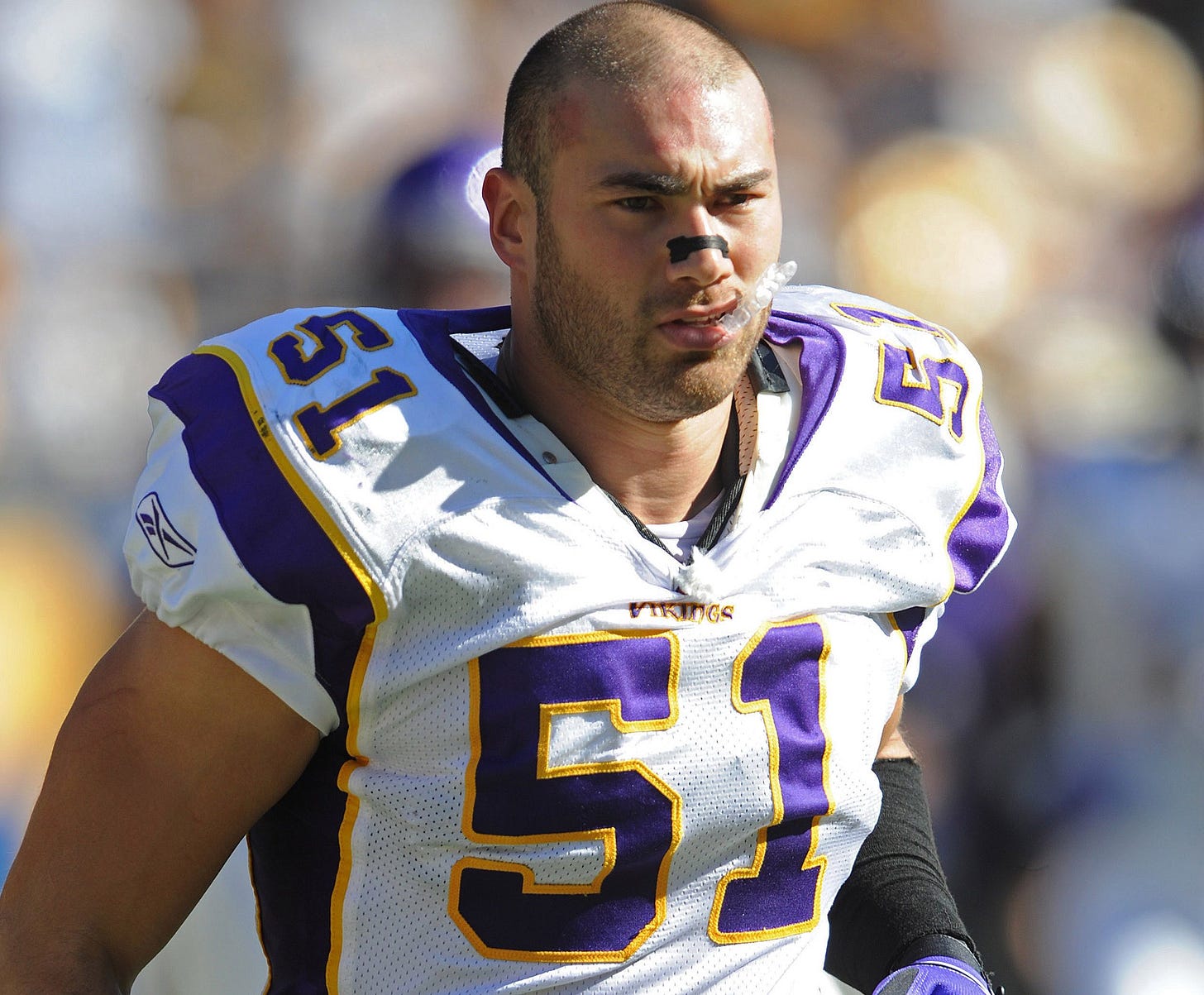
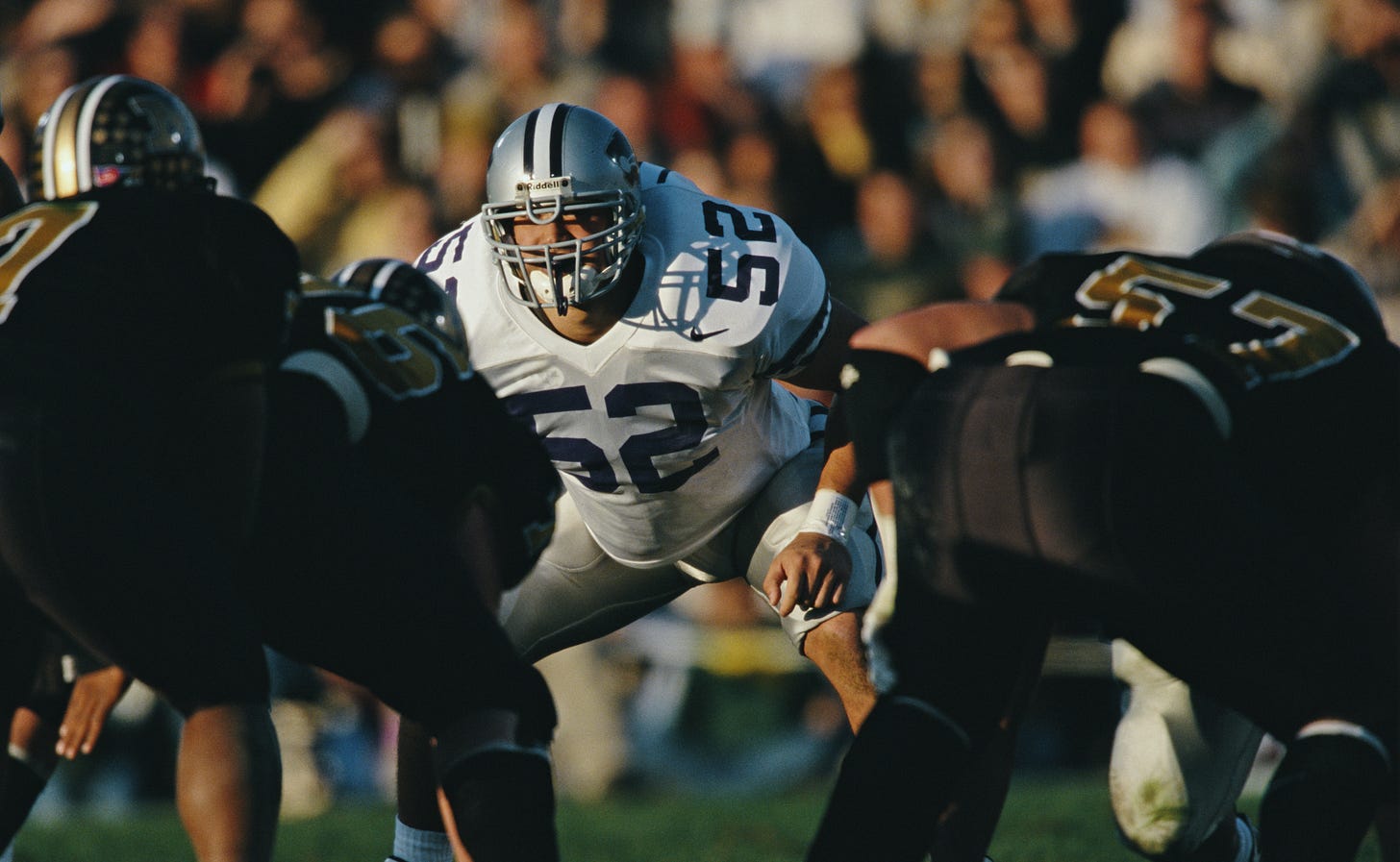
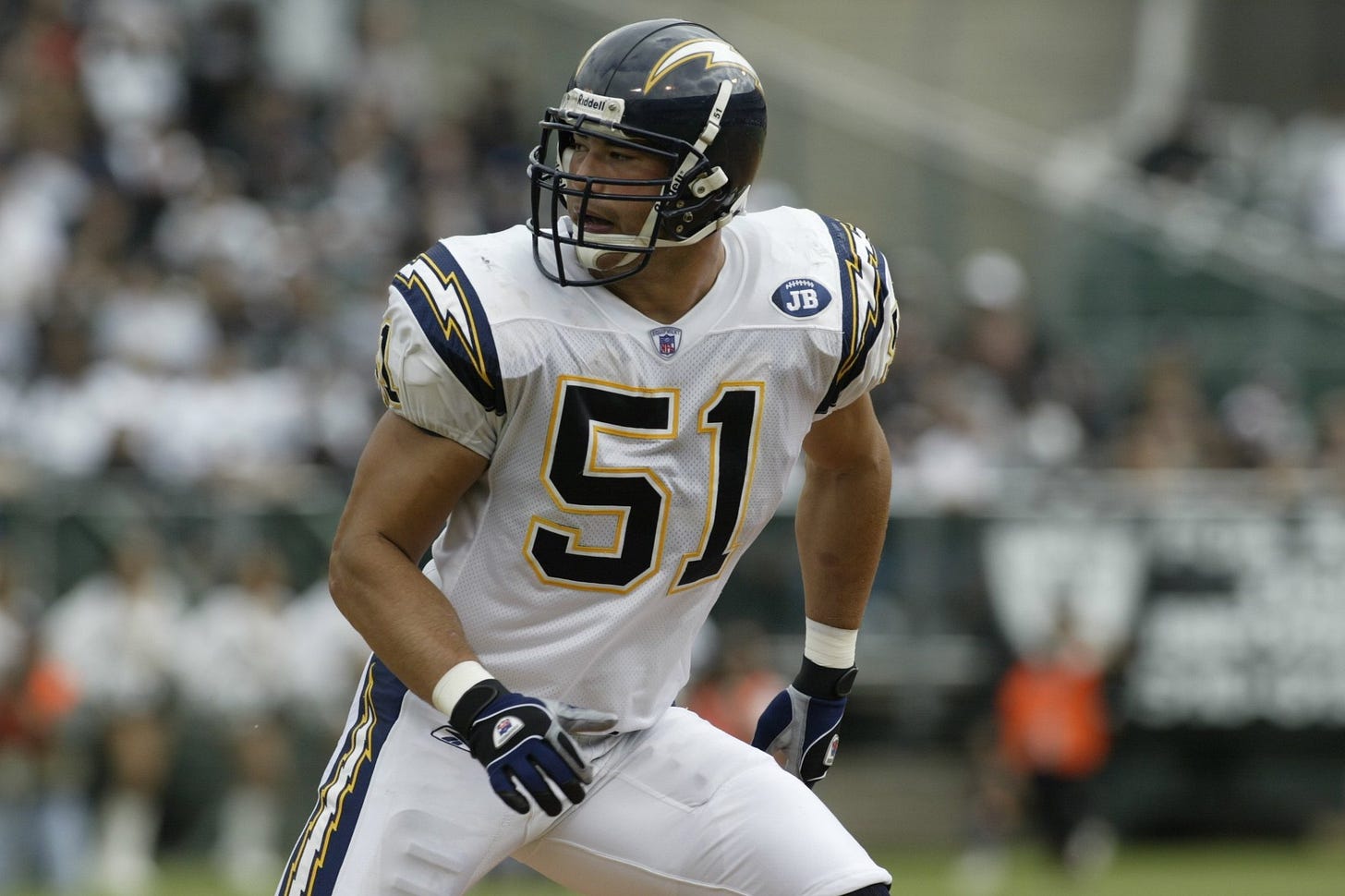


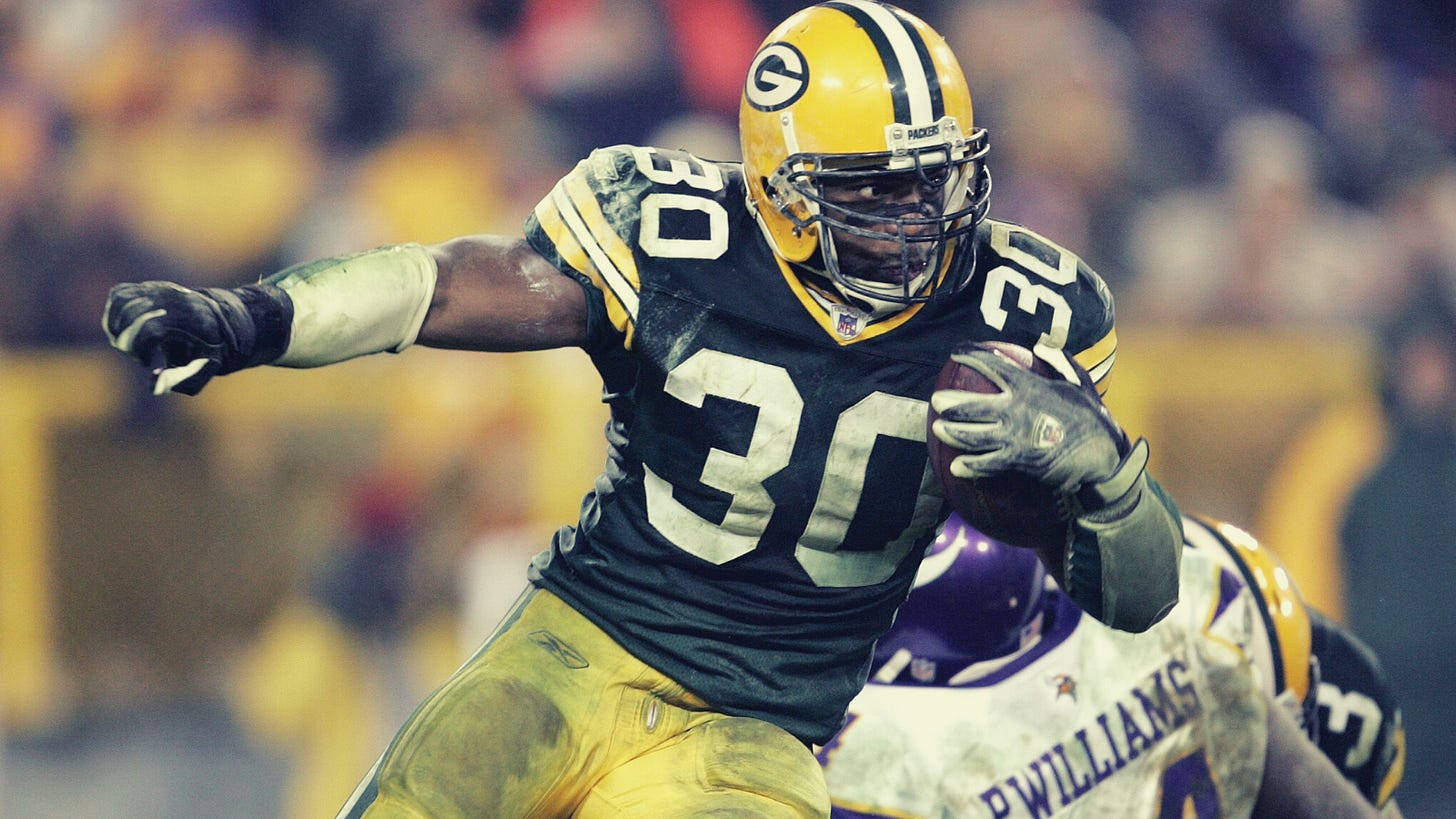



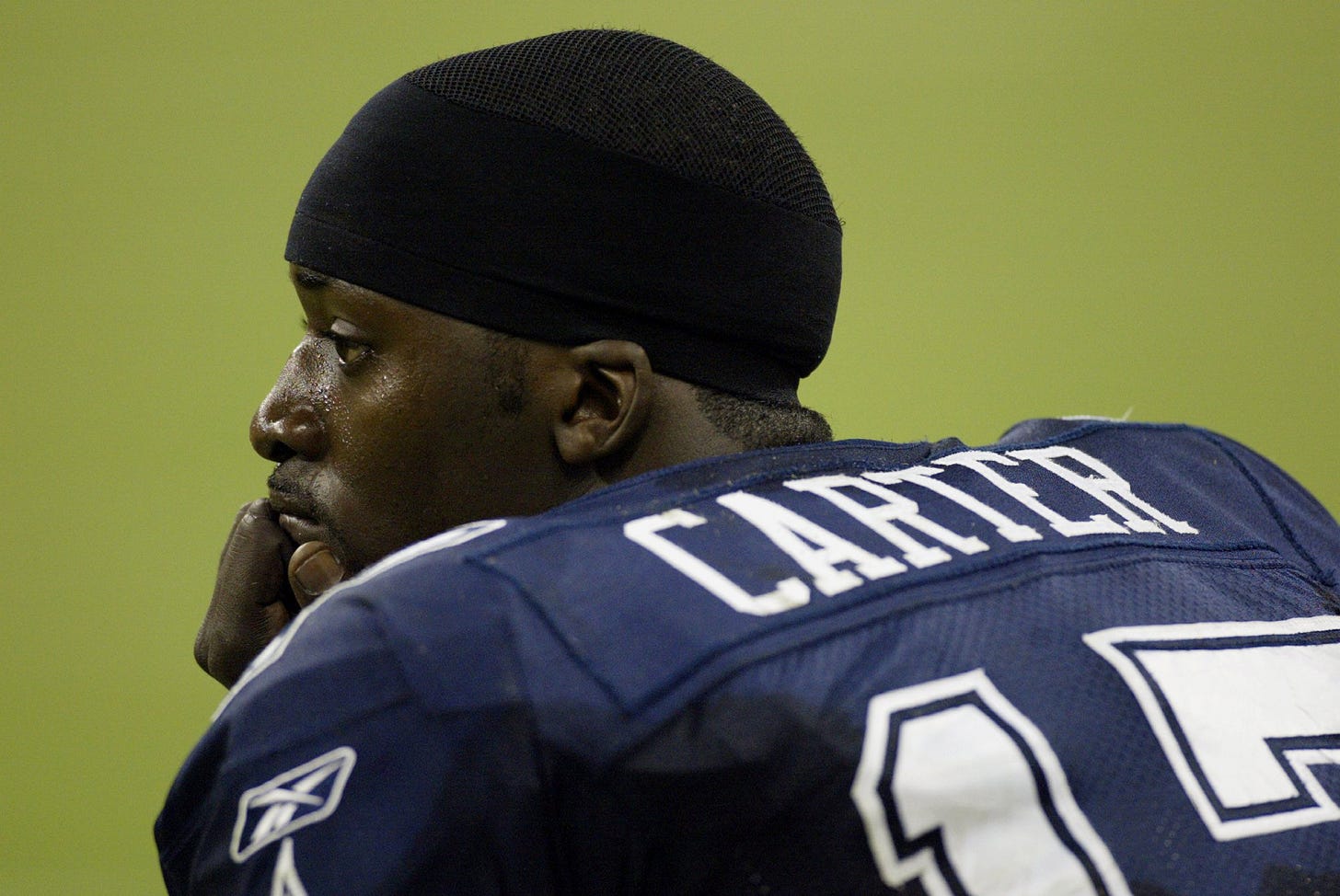

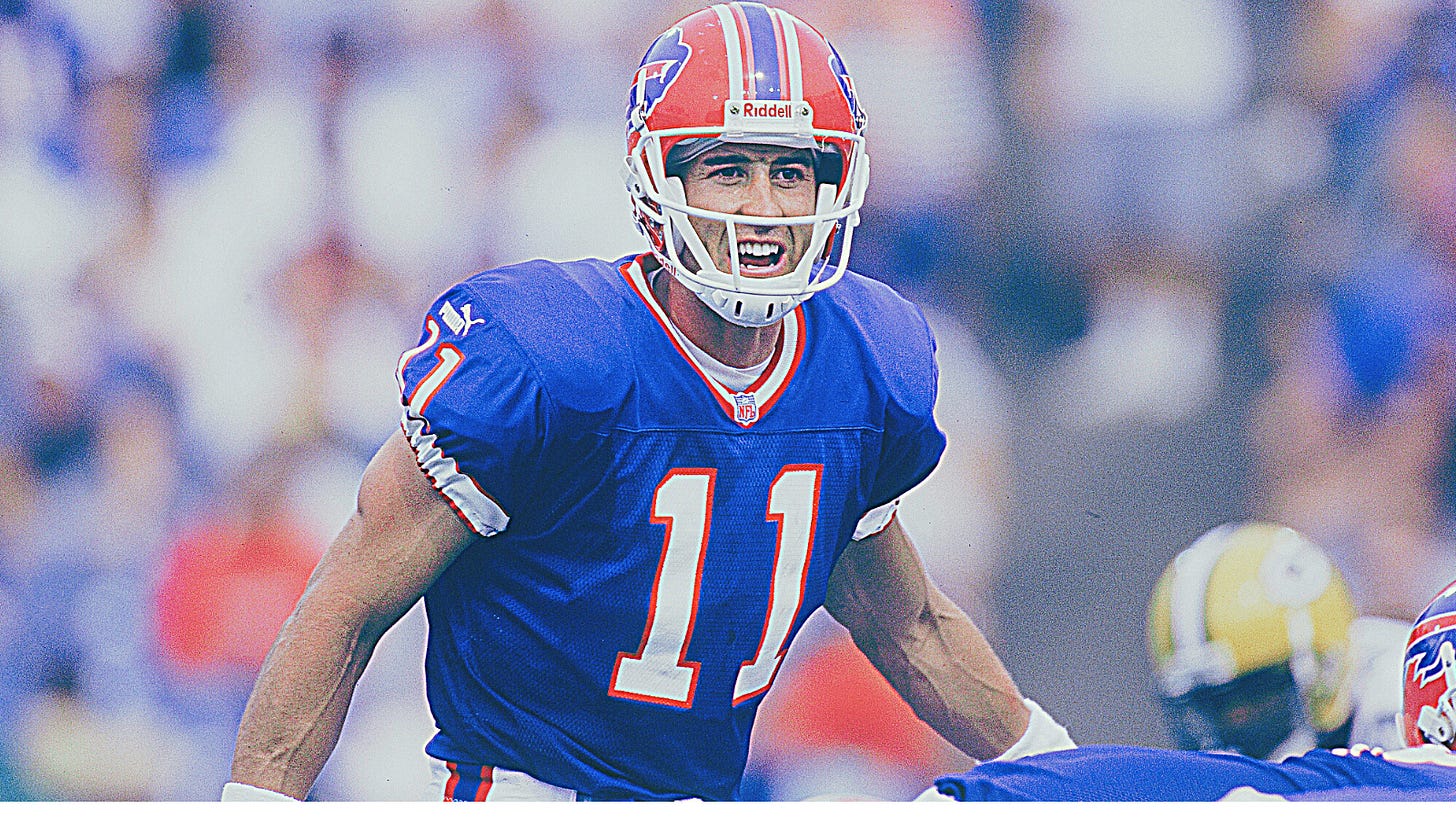


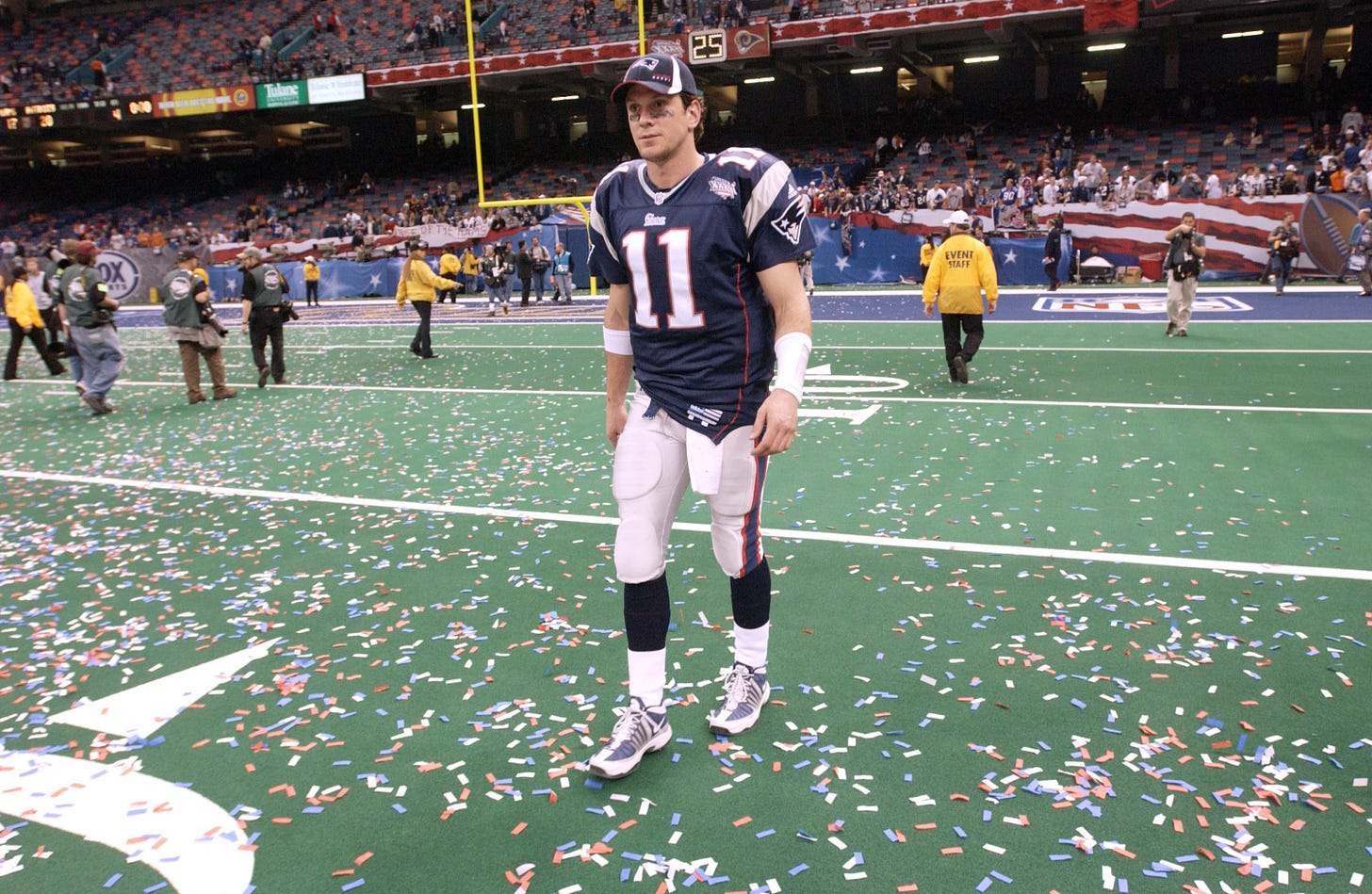
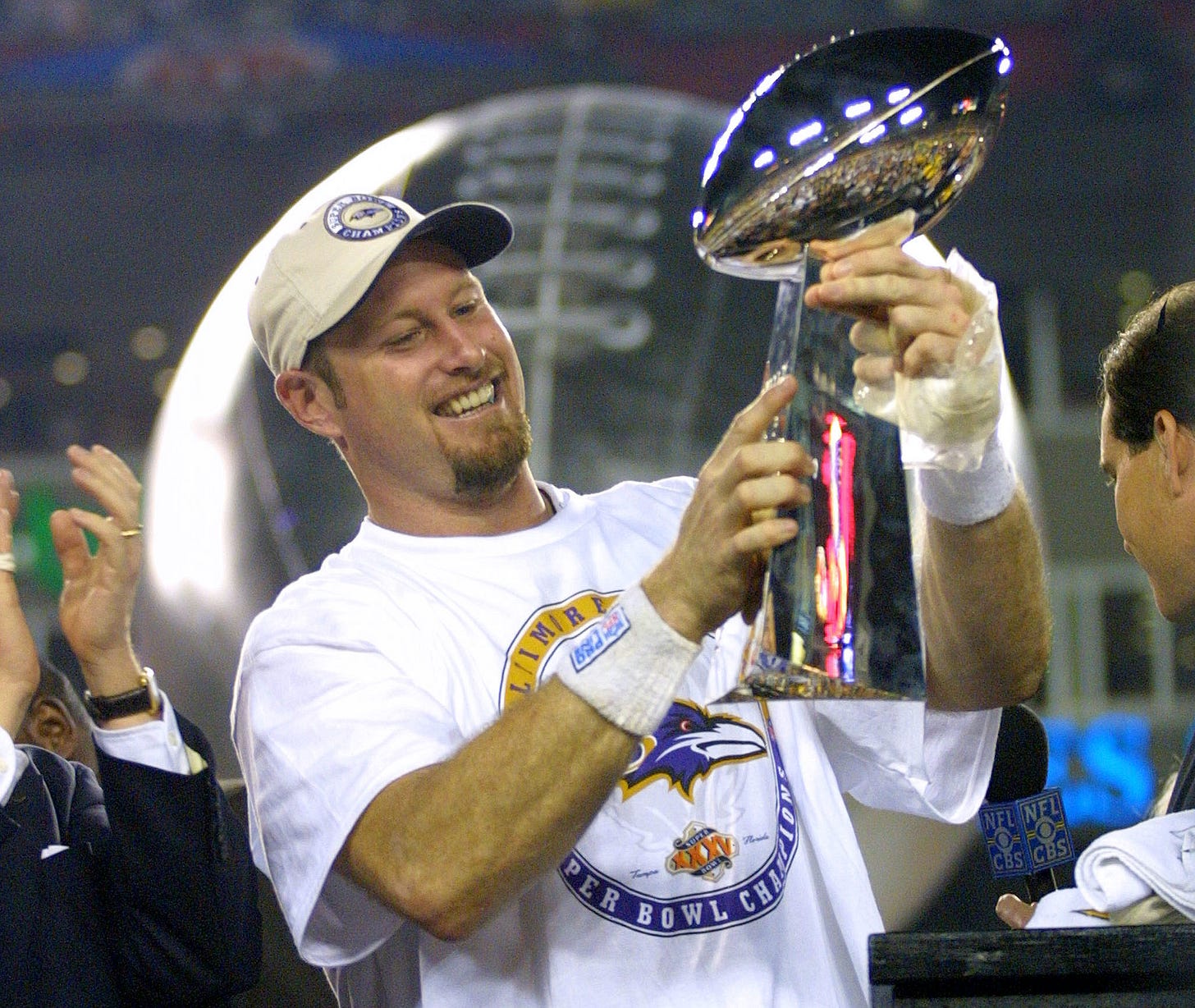
Agree with Ben. The two AP fumbles inside the 5 & the refs not calling the high/low hit on Favre that resulted in an interception as they were on the verge of scoring, were brutal in that game. Might have been one of Favre's greatest games and no one will remember it.